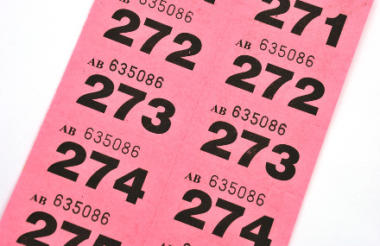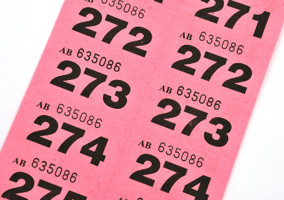NCVO and the Institute of Fundraising (IoF) have both backed the government's suggestion that the annual limits on the amount society lotteries can raise from ticket sales should rise to £100m.
The IoF's submission urged the government to go beyond its recommendations in regards to increasing per draw sales limits and individual prize limits, while NCVO said higher limits should come with increased transparency from lottery operators and measures to ensure they are operating ethically.
In launching the consultation the Department for Digital, Culture, Media and Sport (DCMS) made a number of recommendations for changes to society lottery limits. These included increasing the amount society lotteries can raise from ticket sales from £10m to £100m per year, and increasing the amount per draw to £5m.
Both NCVO and IoF have welcomed an increase on ticket sales to £100m but differ over how much to increase various limits for small society lotteries, as well as over government retaining the current 10 per cent rule – which currently caps maximum prize sizes to 10 per cent of the proceeds from a particular draw. The IoF have called for this to be relaxed, while NCVO have called for it to stay in place.
DCMS said its proposals would be “likely to increase the amount of money societies can raise for good causes”. The consultation opened on 27 June and closed on 7 September.
A spokeswoman for DCMS said it had recieved "over 600 online responses" to the consultation as well as a number of "detailed written responses".
The IoF’s submission
The IoF called upon the government to further increase per draw sales limits to £10m rather than the proposed £5m, and said that individual prize limits should be raised to £1m rather than £500,000.
The IoF’s response said there was “significant benefits in raising lottery limits” as current limitations are “impacting the effectiveness and efficiency of an increasing number of charity lotteries – restricting their ability to raise funds to deliver more for beneficiaries and causes”.
However, the IoF submission said the consultation does not include “key areas which we believe would support society lotteries in the scope of this consultation”.
These include adding flexibility to the “80/20 rule”, which requires a society lottery to return at least 20 per cent of its turnover to good causes, and a call for the Gambling Commission to work more closely to support charity lotteries.
A spokeswoman for DCMS said it received over 600 responses to its online survey, as well as a number of "detailed written responses" to the consultation.
The IoF’s submission was based on a survey it conducted of its members on the topic, which had “around 100 respondents”, according to Daniel Fluskey, head of policy and external affairs at the Institute.
Fluskey said: “We are pleased that the government recognises the importance of society lotteries and this is a welcome opportunity to get the regulatory framework working better so society lotteries can do more for charities and their beneficiaries.
“We have sought our member’s views and believe that there are significant benefits to raising the existing limits up to and beyond what the government has proposed. We also heard about the additional value that lotteries deliver: spreading awareness of a charity in local areas, attracting new supporters, and encouraging other ways of giving.
“We hope that the outcome of the consultation brings about the changes needed on the regulation of society lotteries so that they can reach their potential and make a greater contribution to the sector.”
NCVO’s submission
NCVO backed an increase in the per draw sales limit to £5m, and an increase of the individual per-draw maximum prize limit to £500,000 but said these increases “represent a very rapid rise from current levels”.
Because of this, NCVO called on the government to ensure such increases were “accompanied by increased transparency and measures to ensure that lotteries are operated in a fair and ethical manner”.
It said that society lotteries should “communicate more clearly the breakdown of proceeds going towards prizes, expenses and good causes”; that the substantial increase in the annual sales limit would “mean it becomes necessary more than ever to address the issue of umbrella lotteries” and that changes to the regime should “also be accompanied by strong measures for monitoring society lotteries and their role in the wider gambling marketplace”.
The full response and a blog on the subject from Elizabeth Chamberlain, head of policy and public services at NCVO, can be read here.
|
Related Articles












